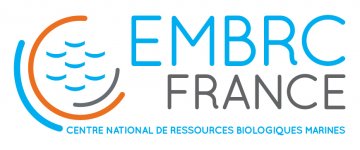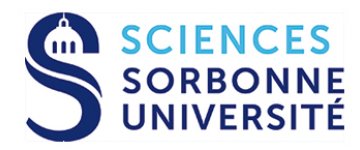Post-doctoral fellowship on marine ecosystem services (18 months)
Post-doctoral fellowship on marine ecosystem services (18 months)
Title: Influence of ecological dynamics on production and demand for marine ecosystem services. A systematic review for decision-making.
Location: Station Biologique de Roscoff (north coast of Brittany, France). Adaptation and Diversity in the Marine Environment laboratory, UMR7144 CNRS Sorbonne Université
Gross salary: about 2900 €/month - Starting date: April 2021
General context: The Roscoff Biological Station (SBR) is a research and higher education center in marine biology and ecology, jointly operated by Sorbonne University and the French National Centre for Scientific Research (CNRS), where about 300 people work. Some of the research conducted at the SBR aims to better understand the mechanisms that control the adaptation of marine organisms and the dynamics of ecosystems in the face of global change. Developing state of the art biology and ecology approaches, it also relies on long-term time series to understand and predict the dynamics of biodiversity and marine ecosystems in a context of increasing anthropogenic pressures.
Project description: The post-doctoral fellowship is funded by the Foundation for Research on Biodiversity (FRB) and the Centre for the Synthesis and Analysis of Biodiversity (CESAB) and aims to carry out a systematic review on the influence of ecological dynamics on the production of and demand for marine ecosystem services.
The assessment of ecosystem services is a way of studying socio-ecosystems by analysing the interactions between their components and requires a rigorous approach within different scientific disciplines (ecology, economics, geography, anthropology, etc.) both to describe these interactions and to understand their scope. However, the heterogeneity of the scientific data produced on marine ecosystem services and, more broadly, on the interactions between marine biodiversity and societies, is today a major obstacle to the effective use of scientific results by decision-makers. The objective of the systematic review is to identify and analyse the interactions between marine biodiversity and human societies to answer the following question: how do ecological dynamics, whether natural or linked to anthropogenic forcing, affect the production and demand for marine ecosystem services? Three marine environments will be targeted as a priority: coastal and nearshore areas described by a plurality of values and exposed to multiple pressures; deep-sea environments which are the subject of emerging issues (e.g. deep sea mining); the open ocean for which international governance is under way. The planned activities will be divided into 3 successive actions: (1) A systematic mapping of the current state of knowledge on the relationships between ecological dynamics and the provision of ecosystem services; (2) A critical evaluation of knowledge leading to the production of a synthesis for scientists and decision-makers; (3) The exploration by a meta-analysis of a few key questions.
The post-doctoral student will interact with an interdisciplinary steering committee composed of ecologists, economists and socio-anthropologists involved in the study of biodiversity dynamics and marine socio-ecosystems. Several one-week stays at CESAB (Montpellier) during which collective work sessions will be planned are scheduled.
Knowledge, skills and abilities: The candidate will have experience in conducting systematic reviews in the fields of ecology or environmental sciences and should master the statistical and programming tools under R for data organisation and analysis. He/she should show an interest in interdisciplinary approaches. A background on the evaluation of ecosystem services and/or the dynamics of marine ecosystems would be preferred. A demonstrated publication record is required.
Application process: Send a detailed CV with contact information of three professional references and cover letter to thiebaut@sb-roscoff.fr before 31 January 2021. Optional documents may include research documents and support letters. Auditions of selected candidates will take place between 1 and 15 February 2021.







